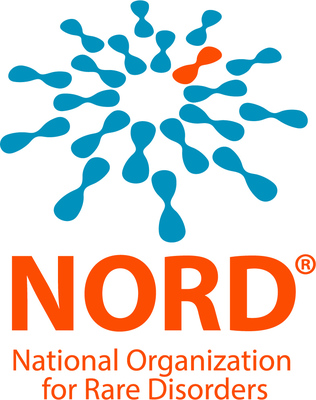Maine
Maine Elevates Rare Disease Voices, Establishes State Advisory Council
Maine becomes the 23rd state to create a council that will help address the needs of rare disease
patients and their families
AUGUSTA, Maine, May 9, 2022 /PRNewswire/ -- Today, Maine's rare disease community celebrated the passage of Legislative Document 972 (LD 972), which officially establishes a Rare Disease Advisory Council (RDAC) in Maine. The RDAC will advise the Maine Legislature and other state departments and agencies on issues that impact the rare disease community.
There are more than 7,000 known rare diseases affecting approximately 25-30 million Americans, more than half of which are children. People with rare diseases face many challenges, including delays in obtaining an accurate diagnosis, finding a health care provider with expertise in their condition, and a lack of affordable access to therapies and medications used to treat rare diseases.
Maine's RDAC will be made up of 20 members with strong connections to the rare disease community, including patients, caregivers, and health care professionals The Maine RDAC will be tasked with identifying and distributing educational resources for health care providers on rare diseases, increasing public awareness of rare diseases in the state, and establishing a comprehensive plan for the management of rare diseases in the state. The council will submit an annual report to the Governor, the Commissioner of Health and Human Services and the Legislature, which must be posted on a publicly accessible website.
"Today, Maine has taken an important step towards improving the outcomes for rare disease patients and families across our state. This legislation was passed in partnership â between the governor, lawmakers on both sides, and several committed advocates â and in turn, it will establish an advisory council committed to that spirit of partnership by helping to establish a brighter future for children and adults with rare diseases," said Representative Margaret Craven, the sponsor of the Rare Disease Advisory Council legislation.Â
"Thank you to Rep. Margaret Craven for championing this legislation to help make a difference for the 1-in-10 Mainers currently living with a rare disease," said Heidi Ross, Vice President, Policy and Regulatory Affairs, National Organization for Rare Disorders. "Bringing important stakeholders together and building a culture of learning â both possible through an RDAC â will help to give Maine's rare disease community a stronger voice in state government."
The National Organization for Rare Disorders (NORD®) established Project RDAC in 2020 to increase the number of RDACs across the country and help optimize existing RDACs. Including Maine, a total of 23 states have signed legislation into law creating a Rare Disease Advisory Council, including six in 2021 alone.
For more information on NORD's Project RDAC, visit https://rarediseases.org/projectrdac/. To learn more about NORD's policy work, visit:Â http://bit.ly/Policy-Issues.
About the National Organization for Rare Disorders (NORD)
The National Organization for Rare Disorders (NORD) is the leading independent advocacy organization representing all patients and families affected by rare diseases in the United States. NORD began as a small group of patient advocates that formed a coalition to unify and mobilize support to pass the Orphan Drug Act of 1983. Since then, the organization has led the way in voicing the needs of the rare disease community, driving supportive policies, furthering education, advancing medical research, and providing patient and family services for those who need them most. Together with over 300 disease-specific member organizations, more than 17,000 Rare Action Network advocates across all 50 states, and national and global partners, NORD delivers on its mission to improve the lives of those impacted by rare diseases. Visit rarediseases.org.
![]() View original content to download multimedia:https://www.prnewswire.com/news-releases/maine-elevates-rare-disease-voices-establishes-state-advisory-council-301543838.html
View original content to download multimedia:https://www.prnewswire.com/news-releases/maine-elevates-rare-disease-voices-establishes-state-advisory-council-301543838.html
SOURCE National Organization for Rare Disorders (NORD)

